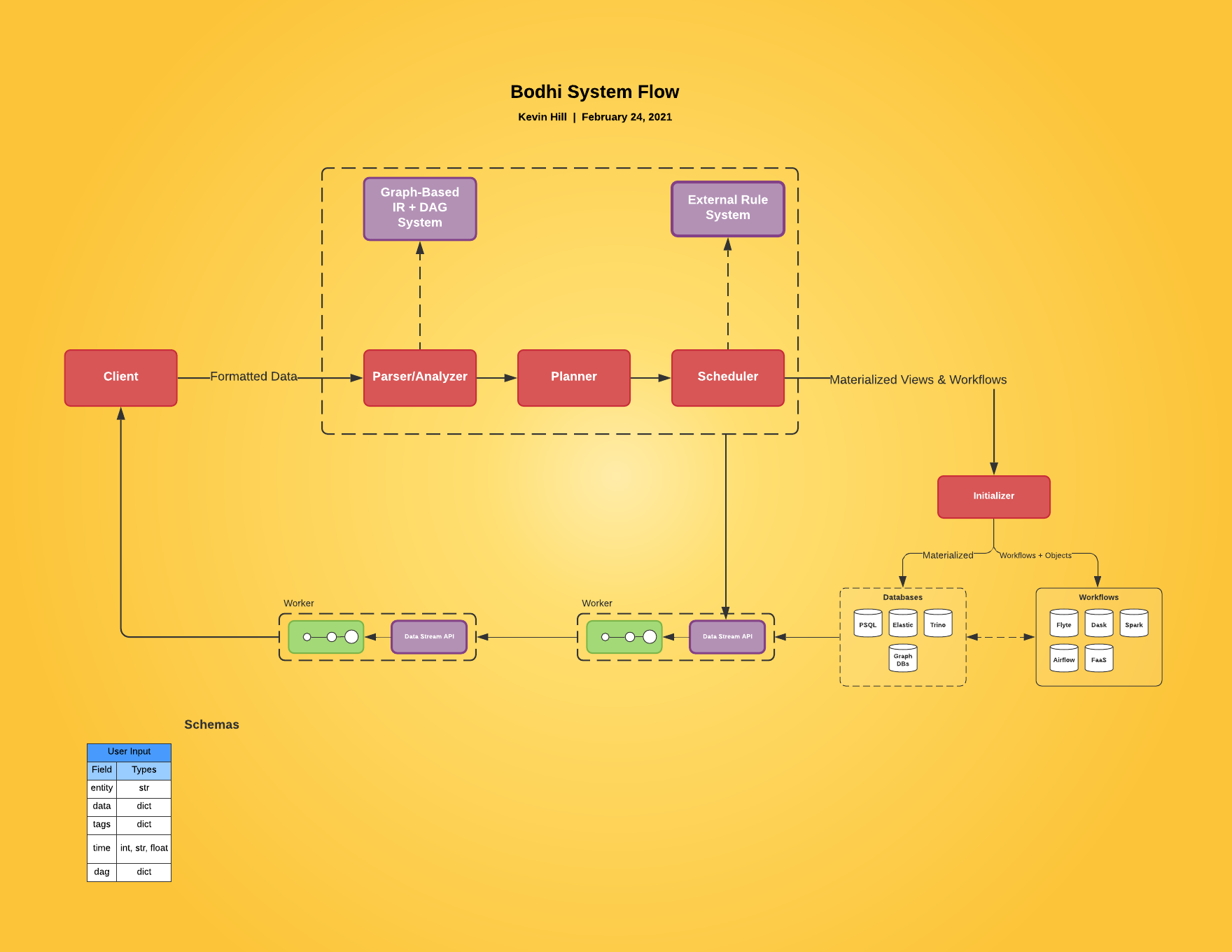| Name | Description |
|---|---|
| Docs | All of the docs and design docs for the project. |
Bodhi Feature Store is a multi-part framework which compiles object oriented Python code to distributed stateful dataflows and features you can manipulate within your database.
These dataflows get converted to different target systems, including SQL (materialized views and triggers), processing systems (such as AWS lambda, etc), and more.
- Analysis and transformation of Python classes to distributed stateful dataflows. These dataflows can be ported to cloud services and dataflow systems.
- Due to the nature of dataflow systems, stateful entities cannot directly interact with each other. Therefore, direct calls to other objects, as done in object-oriented code, does not work in stateful dataflows. StateFlow splits such functions at the AST level to get rid of the remote call. Instead, StateFlow splits a function into several parts such that the dataflow system can move back and forth between the different stateful entities (e.g. dataflow operators).
The full system is comprised of a client and a backend server. The backend server runs takes a compiled AST extracted from the client library and converts it to a dataflow system. The client library is a Python library which can be used to compile and run dataflow systems. It does this by analyzing the AST and converting it into a intermediate representation that the back-end responds to.
The dataflow itself is stored inside of a graph database for easy review, manipulation, sharing, and accessing.
TBA ... These instructuions are sparse for the time being. Will update over time.
docker-compose upHere's the full system design of the Bodhi Feature Store.
The world doesn't need too many new absolutely discrete languages. Python is already a very popular language, so is SQL. Prorcessing framework wise, we already have lambda and many other processing systems. What we need are ways to better manage the interopability of these systems without having to compromise by having to learn an entirely new language.
The upside to using an IR is that we can easily convert the dataflow system to other systems, and expand on those systems dynamically. For example, we can convert simple dataflow logic that doesn't rely on outside code to a SQL code. By using triggers we can reduce the amount of movement of teh data itself.
- - Blog About Subject and Why I'm Doing It
- - Include working examples of the system.
- - Add client library with AST manipulations.
- - Extemd JSON-based Server-side Compiler/Transpiler for more complex dataflows and workflows.
- - Look into monitoring and data exploration.
- - Display compilation targets
- - Documentation. Lots of documentation!!!!!
- https://github.com/YaoApp/yao - Their UI system looks like a good starting for a data explorer.
- https://github.com/JelleZijlstra/autotyping - A
LibCSTautotyping system. Learn how they analyze - Pants Build Engine. It's a source reference to a future workflow system. Note how they use different graphs to define task flows.
- Python AST Manipulation
- Spliff Workflow - A workflow system for Python. Use as a sample source. To learn more about the specific designs while creating circuit based transpilation, look at the the workflow patterns system.
